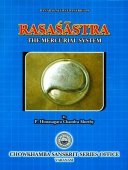Kalpana, Kalpanā: 21 definitions
Introduction:
Kalpana means something in Hinduism, Sanskrit, Jainism, Prakrit, Marathi, Hindi. If you want to know the exact meaning, history, etymology or English translation of this term then check out the descriptions on this page. Add your comment or reference to a book if you want to contribute to this summary article.
In Hinduism
Purana and Itihasa (epic history)
Source: Cologne Digital Sanskrit Dictionaries: The Purana IndexKalpanā (कल्पना).—A mindborn mother.*
- * Matsya-purāṇa 179. 25.

The Purana (पुराण, purāṇas) refers to Sanskrit literature preserving ancient India’s vast cultural history, including historical legends, religious ceremonies, various arts and sciences. The eighteen mahapuranas total over 400,000 shlokas (metrical couplets) and date to at least several centuries BCE.
Vyakarana (Sanskrit grammar)
Source: Wikisource: A dictionary of Sanskrit grammarKalpana (कल्पन).—(or कल्पना (kalpanā)) supposition, assumption; cf गुणकल्पनया च भिक्षुनटसूत्रयोश्छन्दस्त्वम् (guṇakalpanayā ca bhikṣunaṭasūtrayośchandastvam) Kāś. on P. IV.3.110; cf. also अनेक-क्लिष्टकल्पनापेक्षया अस्या उचितत्वात् (aneka-kliṣṭakalpanāpekṣayā asyā ucitatvāt) Pari. Śek. on. Pari. 94.

Vyakarana (व्याकरण, vyākaraṇa) refers to Sanskrit grammar and represents one of the six additional sciences (vedanga) to be studied along with the Vedas. Vyakarana concerns itself with the rules of Sanskrit grammar and linguistic analysis in order to establish the correct context of words and sentences.
Ayurveda (science of life)
Kalpa (Formulas, Drug prescriptions and other Medicinal preparations)
Source: Ancient Science of Life: Yogaśataka of Pandita VararuciKalpanā (कल्पना) refers to “drug formulations”, as dealt with in the 10th century Yogaśataka written by Pandita Vararuci.—The Yogaśataka of Pandita Vararuci is an example of this category. This book attracts reader by its very easy language and formulations which can be easily prepared and have small number of herbs. It describes only those formulations (kalpanā) which are the most common and can be used in majority conditions of diseases.

Āyurveda (आयुर्वेद, ayurveda) is a branch of Indian science dealing with medicine, herbalism, taxology, anatomy, surgery, alchemy and related topics. Traditional practice of Āyurveda in ancient India dates back to at least the first millenium BC. Literature is commonly written in Sanskrit using various poetic metres.
Shaktism (Shakta philosophy)
Source: Google Books: ManthanabhairavatantramKalpanā (कल्पना) (cf. Kandacakra) refers to “cogitation”, according to the Jayadrathayāmala: one of the earliest and most extensive Tantric sources of the Kālīkrama system.—Accordingly, as Bhairava teaches the Goddess about his inner state: “[...] There in the centre [i.e., within the foundation], O daughter of the mountains, is the supreme light between the two, being and nonbeing. Within that centre my (energy) abides in accord with (her supreme) state of being. (She is) Kālī who generates (kalanī) time, she who is the cause of cogitation (kalpanā-hetu-rūpiṇī). Then that supreme goddess who devours time issued forth, absorbed in the bliss of her own (innate) bliss, powerful with the contemplation of (her) own nature. Established on the plane of consciousness and the unconscious, she is between the plane of consciousness and the unconscious. (She is) the goddess who is the Great Void, the Transmental who devours time.”.

Shakta (शाक्त, śākta) or Shaktism (śāktism) represents a tradition of Hinduism where the Goddess (Devi) is revered and worshipped. Shakta literature includes a range of scriptures, including various Agamas and Tantras, although its roots may be traced back to the Vedas.
Vaishnavism (Vaishava dharma)
Source: Brill: Śaivism and the Tantric Traditions (vaishnavism)Kalpanā (कल्पना) refers to the “imagination (of debaters)”, according to the Vedānta Deśika’s Yatirājasaptati.—There are allusions to Rāmānuja’s “protection” of the Vedas, his defeat of those who hold other Vedāntic views as well as the significance of his establishment of the right interpretation of the Vedas in innumerable verses of the Yatirājasaptati. [...] Verse 31 captures in a lovely set of images the nature of Rāmānuja’s works.They are wish-fulfilling trees for the imagination (kalpanā) of debaters, oozing with the nectar of Hari’s feet, possessing many branches so that they can remove suffering/heat, and subduing (with their perfume) the stench of sins.

Vaishnava (वैष्णव, vaiṣṇava) or vaishnavism (vaiṣṇavism) represents a tradition of Hinduism worshipping Vishnu as the supreme Lord. Similar to the Shaktism and Shaivism traditions, Vaishnavism also developed as an individual movement, famous for its exposition of the dashavatara (‘ten avatars of Vishnu’).
Shaivism (Shaiva philosophy)
Source: Google Books: Manthanabhairavatantram (shaivism)Kalpana (कल्पन) refers to “thought constructs”, according to the Mahānayaprakāśa by Arṇasiṃha (Cf. verse 182-197).—Accordingly, “He who is one, supreme and whose glorious power is the unfolding of the first (impulse of the) cosmogenic imagination who, undivided, constantly withdraws into (himself) the womb (of emanation) and the diverse deployment of all things, that is, the perception of individual differences, as does the tortoise its limbs, is the one called Kūrmanātha who is free of the obscuration of thought constructs (kalpana-āvaraṇa)”.

Shaiva (शैव, śaiva) or Shaivism (śaivism) represents a tradition of Hinduism worshiping Shiva as the supreme being. Closely related to Shaktism, Shaiva literature includes a range of scriptures, including Tantras, while the root of this tradition may be traced back to the ancient Vedas.
Yoga (school of philosophy)
Source: ORA: Amanaska (king of all yogas): A Critical Edition and Annotated Translation by Jason BirchKalpana (कल्पन) refers to “conceptual thinking”, according to verse 6.21.14 of the Mokṣopāya.—Accordingly, as Bhuśuṇḍa said to Vasiṣṭha: “When mundane activity in the usual state of the world has fallen [into disarray] at the end of [the world's] duration, then I leave my nest like an ungrateful person [leaves] a good friend. I remain in the ether, all my conceptual thinking (akhila-kalpana) has disappeared, and my constitution and body are immobilized so that my mind is without habitual tendencies. [...]”.

Yoga is originally considered a branch of Hindu philosophy (astika), but both ancient and modern Yoga combine the physical, mental and spiritual. Yoga teaches various physical techniques also known as āsanas (postures), used for various purposes (eg., meditation, contemplation, relaxation).
In Jainism
General definition (in Jainism)
Source: The University of Sydney: A study of the Twelve ReflectionsKalpanā (कल्पना) refers to “imaginings”, according to the 11th century Jñānārṇava, a treatise on Jain Yoga in roughly 2200 Sanskrit verses composed by Śubhacandra.—Accordingly, “A bad birth is hard to be accomplished even in a dream for him whose judgment, which is extremely skilful at examination like a door-keeper, shines in the mind. Having got rid of the multitude of imaginings (kalpanā-jāla), when the steady mind holds onto [its] nature, then it is indeed the best [form of] stopping the influx of karma for a mendicant”.

Jainism is an Indian religion of Dharma whose doctrine revolves around harmlessness (ahimsa) towards every living being. The two major branches (Digambara and Svetambara) of Jainism stimulate self-control (or, shramana, ‘self-reliance’) and spiritual development through a path of peace for the soul to progess to the ultimate goal.
Languages of India and abroad
Marathi-English dictionary
Source: DDSA: The Molesworth Marathi and English Dictionarykalpanā (कल्पना).—f (S) A thought or an idea; a fancy conceived, or an image formed, in the mind. 2 A plan, scheme, device, invention. 3 Sentiment, fancy, imagery, conceit: also a fiction, a fancy, a mental creation. 4 A conjecture, fancy, imagination, a mere conception. 5 A design, purpose, intention. 6 A doubt, apprehension, misgiving. Ex. kalpanēcī bādhā na hō kōṇē kāḷīṃ || hī santa- maṇḍaḷī sukhī asō ||. 7 An assumption, supposition, hypothesis. 8 The art of arrangement or construction (of words or sentences). Ex. padēṃ jarīṃ ṭhāūka asalīṃ tarīṃ vākyācī ka0 karaṇyāsa bōlaṇyā- cā abhyāsa pāhijē. 9 The art, trick, secret (as of an ingenious contrivance); the plan of its construction, the mode of its operation &c.
Source: DDSA: The Aryabhusan school dictionary, Marathi-Englishkalpanā (कल्पना).—f A plan. A thought, sentiment. A doubt.
Marathi is an Indo-European language having over 70 million native speakers people in (predominantly) Maharashtra India. Marathi, like many other Indo-Aryan languages, evolved from early forms of Prakrit, which itself is a subset of Sanskrit, one of the most ancient languages of the world.
Sanskrit dictionary
Source: DDSA: The practical Sanskrit-English dictionaryKalpana (कल्पन).—[klṛp-lyuṭ]
1) Forming, fashioning, arranging.
2) Performing, doing, effecting.
3) Clipping, cutting.
4) Fixing.
5) Anything placed upon another for decoration.
-nā 1 Fixing, settlement; अनेकपितृकाणां तु पितृतो भागकल्पना (anekapitṛkāṇāṃ tu pitṛto bhāgakalpanā) Y.2.12;247; Manusmṛti 9.116.
2) Making, performing, doing.
3) Forming, arranging; विषमासु च कल्पनासु (viṣamāsu ca kalpanāsu) Mṛcchakaṭika 3.14; केश° (keśa°) Mṛcchakaṭika 4.
4) Decorating, ornamenting.
5) Composition.
6) Invention.
7) Imagination, thought; कल्पनापोढः (kalpanāpoḍhaḥ) Sk. P.II.1.38 = कल्पनाया अपोढः (kalpanāyā apoḍhaḥ).
8) An idea, fancy or image (conceived in the mind); Śānti.2.8.
9) Fabrication.
1) Forgery.
11) A contrivance, device.
12) (In Mīm. phil.) = अर्थापत्ति (arthāpatti) q. v.
13) Decorating an elephant.
Derivable forms: kalpanam (कल्पनम्).
Source: Cologne Digital Sanskrit Dictionaries: Shabda-Sagara Sanskrit-English DictionaryKalpana (कल्पन).—n.
(-naṃ) 1. Cutting. 2. Making, manufacturing. 3. Making as a poem or tale, inventing, composing. nf.
(-naṃ-nā) 1. Inference. 2. Invention, fabrication. 3. Caparisoning or decorating an elephant. f. (-nī) A scissors or shears. E. kṛp to be able, &c. lyu or lyuṭ affix, and consequentiy ṭāp or ṅīp fem. do.
Source: Cologne Digital Sanskrit Dictionaries: Benfey Sanskrit-English DictionaryKalpana (कल्पन).—i. e. kḷp + ana, I. n. 1. Determination, [Prabodhacandrodaya, (ed. Brockhaus.)] 111, 8. 2. Caparisoning or decorating an elephant, [Daśakumāracarita] 53, 13. 3. Ornament, Mahābhārata 13, 2784. Ii. f. nā. 1. A rule, [Mānavadharmaśāstra] 9, 116. 2. Performance, [Mṛcchakaṭikā, (ed. Stenzler.)] 47, 17. 3. Making, [Bhāgavata-Purāṇa, (ed. Burnouf.)] 2, 5, 42; 4, 18, 32. 4. Imagination.
Source: Cologne Digital Sanskrit Dictionaries: Cappeller Sanskrit-English DictionaryKalpana (कल्पन).—[neuter] forming, imagining, cutting, fashioning; [feminine] ā the same + contrivance, arrangement, action, deed; form, shape.
Source: Cologne Digital Sanskrit Dictionaries: Monier-Williams Sanskrit-English Dictionary1) Kalpana (कल्पन):—[from kalpa] n. forming, fashioning, making, performing, [cf. Lexicographers, esp. such as amarasiṃha, halāyudha, hemacandra, etc.]
2) [v.s. ...] ‘forming in the imagination, inventing’, composition of a poem, [Prabodha-candrodaya]
3) [v.s. ...] cutting, clipping, working with edge-tools, [Varāha-mihira’s Bṛhat-saṃhitā]
4) [v.s. ...] Name of a religious ceremony
5) [v.s. ...] anything put on for ornament, [Mahābhārata xiii, 2784]
6) Kalpanā (कल्पना):—[from kalpana > kalpa] f. making, manufacturing, preparing, [Suśruta; Bhāgavata-purāṇa]
7) [v.s. ...] practice, [Caraka]
8) [v.s. ...] fixing, settling, arranging, [Manu-smṛti ix, 116; Yājñavalkya]
9) [v.s. ...] creating in the mind, feigning, assuming anything to be real, fiction, [Kapila’s Sāṃkhya-pravacana] etc.
10) [v.s. ...] hypothesis, [Nyāyamālā-vistara]
11) [v.s. ...] caparisoning an elephant, [Daśakumāra-carita]
12) [v.s. ...] form, shape, image
13) [v.s. ...] a deed, work, act, [Mṛcchakaṭikā]
Source: Cologne Digital Sanskrit Dictionaries: Yates Sanskrit-English DictionaryKalpana (कल्पन):—(naṃ) 1. n. Cutting; composing. (nā) 1. f. Inference; invention; ornamenting an elephant.
Source: DDSA: Paia-sadda-mahannavo; a comprehensive Prakrit Hindi dictionary (S)Kalpana (कल्पन) in the Sanskrit language is related to the Prakrit words: Kappaṇa, Kappaṇā.
[Sanskrit to German]
Sanskrit, also spelled संस्कृतम् (saṃskṛtam), is an ancient language of India commonly seen as the grandmother of the Indo-European language family (even English!). Closely allied with Prakrit and Pali, Sanskrit is more exhaustive in both grammar and terms and has the most extensive collection of literature in the world, greatly surpassing its sister-languages Greek and Latin.
Hindi dictionary
Source: DDSA: A practical Hindi-English dictionaryKalpanā (कल्पना):—(nf) imagination; fiction; supposition, assumption; —[citra] imaginary picture; ~[pravaṇa] imaginative; hence ~[pravaṇatā] (nf); ~[prasūta] imaginary, fictional; invented; —[loka] in an imaginary/phantastic world; —[loka meṃ honā] to be in the clouds, to be in a world of phantasy; —[śakti] imagination, imaginative faculty; —[sṛṣṭi] a mental creation, imaginative creation.
...
Kannada-English dictionary
Source: Alar: Kannada-English corpusKalpana (ಕಲ್ಪನ):—[noun] = ಕಲ್ಪನೆ [kalpane].
Kannada is a Dravidian language (as opposed to the Indo-European language family) mainly spoken in the southwestern region of India.
See also (Relevant definitions)
Starts with: Kalpanabaja, Kalpanagaurava, Kalpanajala, Kalpanajalaka, Kalpanala, Kalpanalaghava, Kalpanamala, Kalpanamanditika, Kalpanarupa, Kalpanashakti, Kalpanashattki, Kalpanasrishti, Kalpanatattva, Kalpanath, Kalpanatha, Kalpanatit, Kalpanatita, Kalpanatmaka, Kalpanavidhi.
Ends with (+38): Abhikalpana, Adrishtakalpana, Akalpana, Akhilakalpana, Amshakalpana, Amshaprakalpana, Anukalpana, Apathakalpana, Asantkalpana, Asatkalpana, Atmakalpana, Aushadhakalpana, Avakalpana, Bhagakalpana, Catushpathakalpana, Devalayakalpana, Doshakalpana, Dravyaprakalpana, Ghritakalpana, Gunakalpana.
Full-text (+945): Kappana, Upakalpana, Doshakalpana, Vibhagakalpana, Parikalpana, Kalpanika, Kalpanashakti, Prabandhakalpana, Prakalpana, Ucchishtakalpana, Samkalpanamaya, Bhagakalpana, Pathakalpana, Asatkalpana, Kalpanavidhi, Akalpa, Prativikalpana, Yavattavatkalpana, Kalpani, Alpetara.
Relevant text
Search found 57 books and stories containing Kalpana, Kalpanā; (plurals include: Kalpanas, Kalpanās). You can also click to the full overview containing English textual excerpts. Below are direct links for the most relevant articles:
Sahitya-kaumudi by Baladeva Vidyabhushana (by Gaurapada Dāsa)
Text 10.83 [Atiśayokti] < [Chapter 10 - Ornaments of Meaning]
Text 11.45 [Mithyādhyavasiti] < [Chapter 11 - Additional Ornaments]
Text 10.67 < [Chapter 10 - Ornaments of Meaning]
Vakyapadiya of Bhartrihari (by K. A. Subramania Iyer)
Verse 3.9.38 < [Book 3 - Pada-kāṇḍa (9): Kāla-samuddeśa (On Time)]
Verse 3.14.335 < [Book 3 - Pada-kāṇḍa (14): Vṛtti-samuddeśa (On Ccomplex Formation)]
Verse 3.11.20 < [Book 3 - Pada-kāṇḍa (11): Saṅkhyā-samuddeśa (On Number)]
Atharvaveda and Charaka Samhita (by Laxmi Maji)
Śārṅgadhara-Saṃhitā (Āyurveda book) < [Chapter 1 - Introduction]
Yogaratnākara (Āyurveda book) < [Chapter 1 - Introduction]
The Tattvasangraha [with commentary] (by Ganganatha Jha)
Verse 1219 < [Chapter 17 - Examination of the Definition of Sense-perception]
Verse 1229 < [Chapter 17 - Examination of the Definition of Sense-perception]
Verse 1223 < [Chapter 17 - Examination of the Definition of Sense-perception]
Cidgaganacandrika (study) (by S. Mahalakshmi)
Verse 173 [Kāli as creator of Parā-aparābheda] < [Chapter 3 - Third Vimarśa]
Verse 201-202 [Kalpanā-Dhāraṇā-Kālidevata Tattvas] < [Chapter 4 - Fourth Vimarśa]
Verse 282 [Citi Śakti is kinetic element of Cit] < [Chapter 4 - Fourth Vimarśa]
A comparative study between Buddhism and Nyaya (by Roberta Pamio)
6.2. The Meaning of Kalpanā < [Chapter 3 - The Buddhist Theory of Perception]
5.2. Diṅnāga’s definition of Perception < [Chapter 3 - The Buddhist Theory of Perception]
Related products
(+5 more products available)





